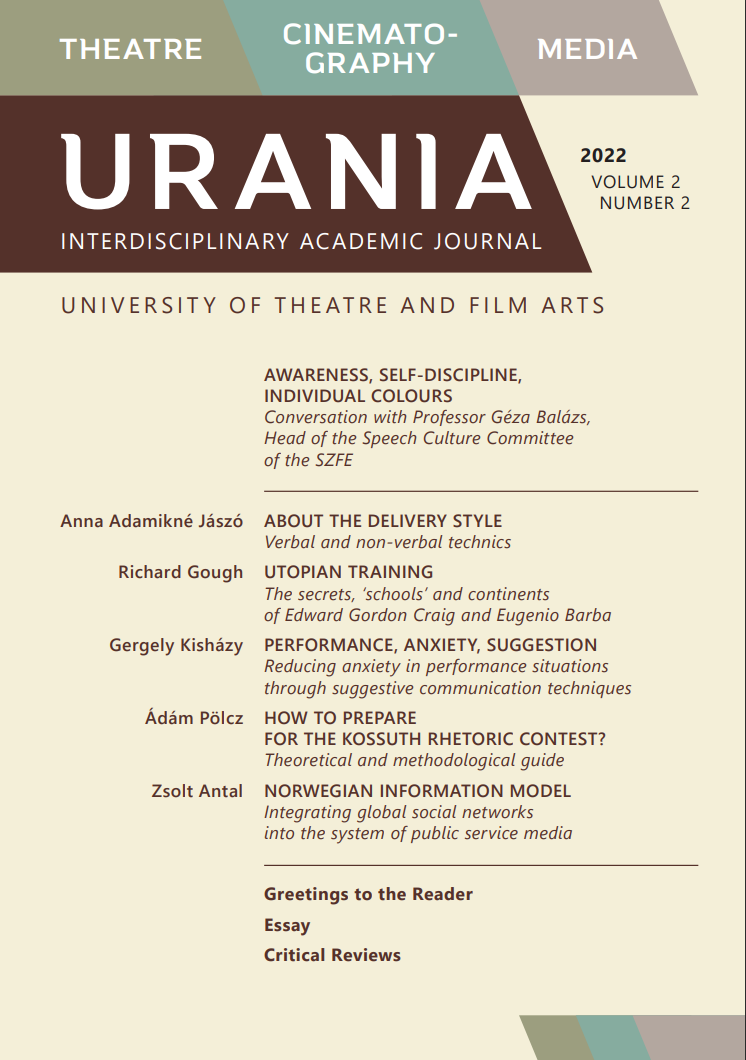Body and Space
Essay on Suzuki Tadashi's post-humanist-humanist creative thinking
Abstract
The paper presents Suzuki Tadashi’s theatrical thinking, with a special focus on his insights into the body and space. It introduces the key stages of his creative career and discusses why the director sees the social function of theatre as primarily critical. Following a discussion of the importance of artistic reflections, the author discusses Suzuki’s unique insights, contextualising them with an interpretation of the Japanese cultural tradition. The paper depicts the actor’s body and the theatrical space as an inseparable unit, and their interdependent relationship is elucidated in the theatrical act. Continuing this idea, the author frames Suzuki’s humanist philosophy with some of the claims of postphenomenology.
References
Brook, Peter. 1973. Az üres tér, Fordító: Koós Anna. Budapest: Európa Könyvkiadó.
Camilleri, Frank. 2009. „Of Pounds of Flesh and Trojan Horses: Performer training in the twenty-first century.” In Performance Research XIV/2: 26–34.
Camilleri, Frank. 2020. Performer Training Reconfigured. London, New York, Oxford, New Delhi, Sydney: Methuen Drama.
Carruthers, Ian and Yasunari, Takahashi. 2004. The Theatre of Tadashi Suzuki. Cambridge, New York, Melbourne: Cambridge University Press.
Goto, Yukihiro. 1988. Innovator of Contemporary Japanese Theatre. Ann Arbor: UMI.
Oida, Yoshi and Marshall, Lorna. 1997. An Invisible Actor. London, New Delhi, New York, Sydney: Bloomsbury.
Suzuki, Tadashi. 1987. The Way of Acting, English translator: J. Thomas Rimer. New York: Theatre Communication Group.
Zarrilli, Phillip. 2009. Psychophysical Acting – An Intercultural Approach After Stanislavski, London and New York: Routledge.




